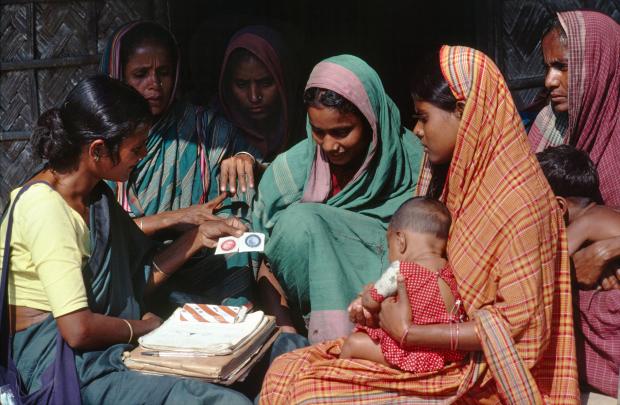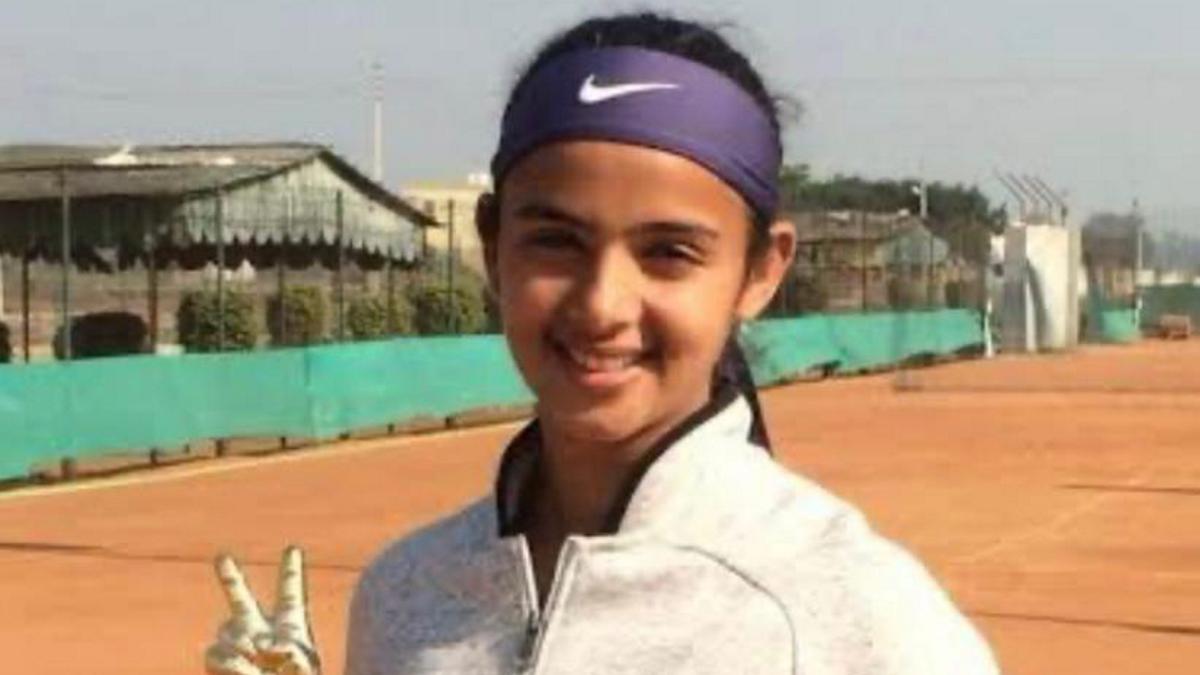Sulekha Mal greeted us with homemade Maalpoha (dessert) when we arrived at her residence. Sulekha has earned a reputation for herself in her hamlet of Gamra in Sikaripara Block, Jharkhand, for her revolutionary efforts in the field of health. Gawra, situated on the border between Jharkhand and West Bengal, is isolated from basic health and education services.
Sulekha sat with us and told us about her experience after she was free of her routine responsibilities. Sulekha Mal, 45, is a member of the Mal Pahariya Tribe, a Particularly Vulnerable Tribal Group (PTGs). The Dhebhar Commission established the Primitive Tribal Groupings as a separate category in 1973, indicating that they are the least developed of the tribal groups. The PTGs were renamed PVTGs by the government in 2006.
There are 75 PTGs among the 705 Scheduled Tribes. They are mainly homogeneous, have a tiny population, are relatively physically separated, lack written language, have primitive technology, and change happens at a slower pace.
Sulekha said, “When I was younger, I wanted to be a nurse so that I could help those who are sick. Even I had intended to study science after tenth grade. However, due to family pressure, my father married me after the tenth result. Consequentially, I had to leave my studies behind.” Sulekha currently works as a cook at a neighbouring government school and volunteers as a Badlav Didi, (teaching woman) in her community for basic health etiquette.

Sulekha was married at a very early age and because of this, her reproductive health was not developed properly. She told us, “After five years of my marriage, I was not able to get pregnant. My father-in-law was talking about a second marriage for his son, but thanks to god I got pregnant that year. Now, I am a mother of two boys.”
She recalled that the early days for her family were not easy. “We did not have a proper house, sometimes we even had to sleep empty stomach. I worked as a maid in a few houses, and then slowly, things improved for us. We invest in the education of our elder son, I promised myself that I will do anything to teach my son and he will fulfil my dream by becoming a doctor. We enrolled him in science after the tenth, he was also performing well, but…“
Sulekha paused for a second and continued, “In 2018, he brought home a sixteen-year-old girl and we had to accept her as our Bahu (daughter-in-law). At the age of twenty, my son got married. I was so tensed that I did not eat a single meal for two days.” There is a live-in relationship tradition in the Mal Pahariya tribe. People usually go to the weekend markets, and if they like each other, they come home together, explained Sulekha.
Her daughter-in- law Mala Mal, who is now 19 years old, told us that relatives frequently enquire about her sexual health. “My senior mother-in-law questioned me, Do you have a problem with periods? Why haven’t you had a child yet?” she said. Mala quickly responded, “My mother gave me a condom to avoid pre-age pregnancy. I was married before I was eighteen, therefore giving birth now would be detrimental to my health”
“At that point, I realised I couldn’t sit like this any longer. I would not put my daughter-in-law through the same ordeal that I endured. It was self-evident that if they both live together, there would be a high likelihood of physical intimacy.” With hand gestures, she told us, “If that’s the case, I would be in double trouble. My son’s schooling would be jeopardised, and my daughter-in- law’s health would be put at risk.”
She extrapolated to us that she had received health training from PRADAN– a non-profit organisation, and that they had taught her about sexual health and family planning. “So I decided to give my daughter-in-law a condom to prevent early pregnancy. First, I was worried, wondering if it was correct or incorrect. But then I gathered my courage and walked into my daughter-in-law’s room. I moved my hand slowly towards her and handed her a condom. I was expecting her to object, but she gladly accepted it, politely,” said Sulekha.
Also read: What Contributes To Teenage Pregnancies In India?
I also informed my husband about the situation, and he was supportive and did not protest. My son was a medical student, so he readily accepted. “However, it was mocked by the neighbours. They teased me about the kind of mother I am. Who delivers this gandi cheez (Bad stuff) to her son?”, Sulekha recalled. I didn’t answer at first, but after a while, I raged at them, saying, “Who will look after my daughter-in-law during her pregnancy. What about the schooling of my son? Giving contraceptives to my son was the correct thing to do.” No one talks about it after that. “My daughter-in-law has not been pregnant till now,” Sulekha thanks god, by pressing her hands in a namaste.
Her daughter-in- law Mala Mal, who is now 19 years old, told us that relatives frequently enquire about her sexual health. “My senior mother-in-law questioned me, Do you have a problem with periods? Why haven’t you had a child yet?” she said. Mala quickly responded, “My mother gave me a condom to avoid pre-age pregnancy. I was married before I was eighteen, therefore giving birth now would be detrimental to my health.”
“During their periods, I recommended them to use sanitary pads. Instead of pads, you can use a clean cotton cloth. I constantly tell them to throw away used sanitary pads and cloths in a pit or burn them. Take a bath on a regular basis to keep the body clean. All of the girls thanked me for the knowledge after the training,” she says
In India, a substantial number of women aged 19 to 29 years die during or shortly after childbirth. According to the Sample Registration System (SRS), in 2015 and 2017, 34 per cent of pregnant women under the age of 30 died during their pregnancy. According to UNICEF, India and Nigeria were responsible for a third of all maternal fatalities worldwide in 2017. Three years ago, both countries reported around 35 per cent of the projected number of maternal deaths.
As per the National Family Health Survey 2015-16, 12 per cent of the women aged between 15-19 years had already become mothers or were pregnant at the time of the survey. This number rose to 13.9 per cent in rural Jharkhand. This same survey also highlights that only 2.2 per cent of people prefer condoms for family planning purposes, which is a cheap, easy to use method to avoid pregnancy. The majority of them prefer female sterilisation for family planning.

Sulekha now works as a health educator for other women. “I told the principal at my school that I wanted to teach young girls about menstruation. My principal agreed by advising me to distribute government-supplied sanitary pads to the girls“, Sulekha remembers. Sulekha educated girls about menstrual hygiene during a school presentation.
“During their periods, I recommended them to use sanitary pads. Instead of pads, you can use a clean cotton cloth. I constantly tell them to throw away used sanitary pads and cloths in a pit or burn them. Take a bath on a regular basis to keep the body clean. All of the girls thanked me for the knowledge after the training,” she says.
Sulekha also educates pregnant women so that there would be no problem at the delivery. She proudly informed us, ”In my village, all deliveries took place in hospitals.”
She told us, “After getting training from PRADAN, my dream to become a nurse felt fulfilled.” PRADAN educates and positions well-educated people with empathy at the grassroots, who support and engage with strong women’s collectives working to improve the human situation on a large scale. They were the driving force behind this transformation, which was made possible by the IKEA Foundation’s project STaRtuP (SHG-led transformation of Rural Communities via Partnership).

“We train Change vector didis as part of this project. We educate them about health, nutrition, and how to make a living during this training. Furthermore, our primary training focuses on the usage of contraceptives as well as how to care for pregnant women and infants. This information was communicated by a Change vector to three Self Help Groups (SHG), each of which consisted of 10 women, implying that a single CV trained thirty women at once,” explains Kratika, Executive, PRADAN.
She further added, “For technical support, we partnered with the Public Health Resource Society (PHRS) who provided training to PRADAN staff as well as developed training modules for the community to build their perspective around health and nutrition issues.”
“Sulekha has been an active change vector didi during the entire training. Her interest in nursing also aided her, and the way she individually applies all of the learning makes her an inspiration to others“, Karthika said.
Also read: Sexual And Reproductive Health: The Missing Link In NEP 2020
Amit Pandey is a Delhi based freelance journalist. You may find him on Twitter
Featured Image Source: dandc.eu




